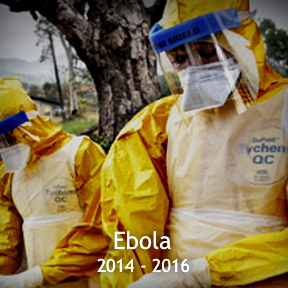Module List
Modules
Learn about infectious agents as well as epidemics and pandemics past and present.
The purpose of this module is to introduce students to infectious diseases and the agents that cause them. Students determine the differences between infectious and noninfectious diseases, explore the different kinds of organisms that cause disease, distinguish among outbreaks, epidemics, pandemics, and emerging and re-emerging diseases, and compare Ebola virus and measles virus, the infectious agents involved in recent outbreaks of these diseases. This module provides foundational concepts and understandings for subsequent modules in this series.
Explore the science of tracking the origins and causes of outbreaks and epidemics.
The purpose of this module is to introduce students to the science of tracking the causes of an epidemic and identifying factors involved in its spread. Epidemiology is the study of the distribution of diseases in a population, and the application of this study to controlling the outbreaks, epidemics and pandemics by understanding its origins and patterns of the spread of a disease. The module explores three major ideas in epidemiology – identifying the first cases of an infectious disease, determining the causative agent, and tracking how it spread.
Investigate the many factors that determine whether outbreaks and epidemics of emerging and re-emerging diseases will occur.
The purpose of Module 3, Viruses Go "Viral", is to examine in greater depth the factors contributing to outbreaks and epidemics. Students begin by examining the difference between a pathogen being infectious and being contagious in a categorizing activity. After reading about the SARS and Zika epidemics, they identify the factors involved in the emergence and spread of new infectious diseases. Students learn about the reproduction rate (R0) of viruses as a measure of whether a viral outbreak is likely to escalate into an epidemic. Students then determine the impact of vaccination on a measles outbreak and prepare for a mock town meeting about enforcing stricter vaccination policies on childhood vaccinations.
Learn about how infectious diseases can be treated and how personal behaviors, public health programs, the immune response, and vaccines can protect against infection.
The purpose of this module is to introduce students to treatment and prevention of infectious viral diseases. Students learn that treatment of viral diseases is difficult and prevention through public health systems, personal care, and vaccination is the most effective approach to stopping outbreaks and epidemics. They explore how the body defends itself against viral infections, and investigate how vaccines activate the immune system to provide protection against viral infections.




